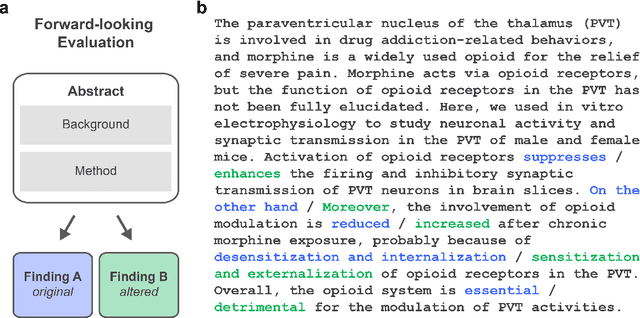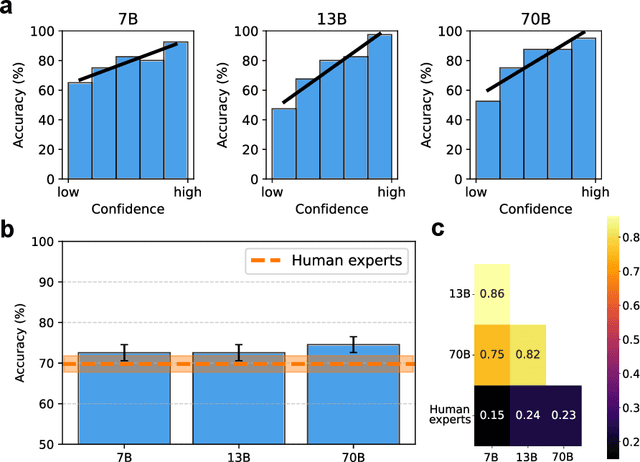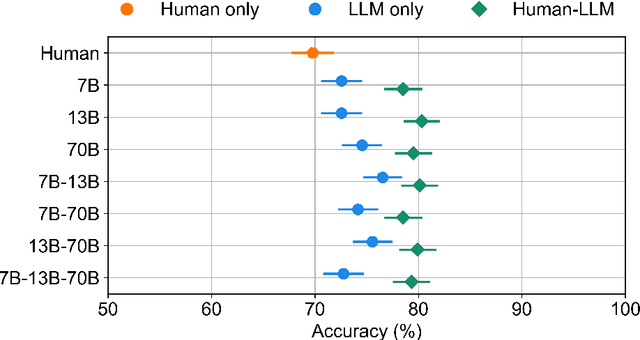Felipe Yáñez
Confidence-weighted integration of human and machine judgments for superior decision-making
Aug 15, 2024



Abstract:Large language models (LLMs) have emerged as powerful tools in various domains. Recent studies have shown that LLMs can surpass humans in certain tasks, such as predicting the outcomes of neuroscience studies. What role does this leave for humans in the overall decision process? One possibility is that humans, despite performing worse than LLMs, can still add value when teamed with them. A human and machine team can surpass each individual teammate when team members' confidence is well-calibrated and team members diverge in which tasks they find difficult (i.e., calibration and diversity are needed). We simplified and extended a Bayesian approach to combining judgments using a logistic regression framework that integrates confidence-weighted judgments for any number of team members. Using this straightforward method, we demonstrated in a neuroscience forecasting task that, even when humans were inferior to LLMs, their combination with one or more LLMs consistently improved team performance. Our hope is that this simple and effective strategy for integrating the judgments of humans and machines will lead to productive collaborations.
Large language models surpass human experts in predicting neuroscience results
Mar 14, 2024Abstract:Scientific discoveries often hinge on synthesizing decades of research, a task that potentially outstrips human information processing capacities. Large language models (LLMs) offer a solution. LLMs trained on the vast scientific literature could potentially integrate noisy yet interrelated findings to forecast novel results better than human experts. To evaluate this possibility, we created BrainBench, a forward-looking benchmark for predicting neuroscience results. We find that LLMs surpass experts in predicting experimental outcomes. BrainGPT, an LLM we tuned on the neuroscience literature, performed better yet. Like human experts, when LLMs were confident in their predictions, they were more likely to be correct, which presages a future where humans and LLMs team together to make discoveries. Our approach is not neuroscience-specific and is transferable to other knowledge-intensive endeavors.
 Add to Chrome
Add to Chrome Add to Firefox
Add to Firefox Add to Edge
Add to Edge